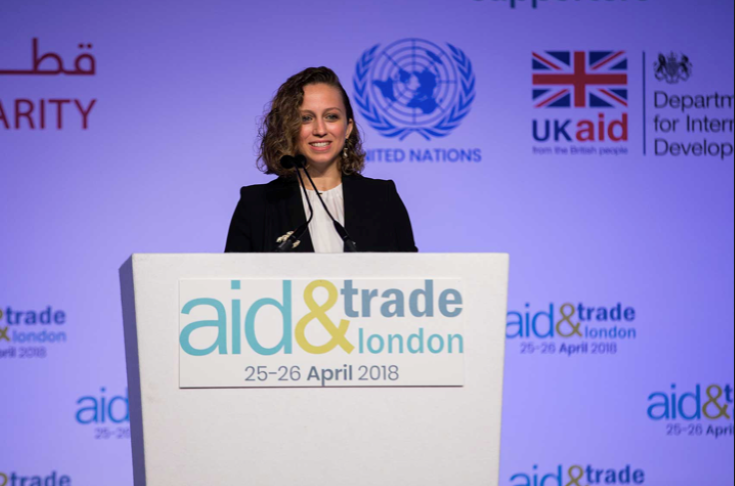World Humanitarian Forum (WHF) 2019
‘Technology is playing a key role as a changemaker’
The WHF is to be held in London, April 17-18, 2019.
Leading philanthropists, NGOs and private sector leaders from Oxfam, UN, WHO, Microsoft Philanthropies, Google, KPMG, Red Cross and ICRC will participate in the fastest growing humanitarian aid and international development event – the World Humanitarian Forum (WHF) - taking place in London on April 17–18, 2019. The event portfolio is expected to attract more than 5,000 global public and private sector officials from over 50 countries. The event will also showcase the latest technologies, including drones that aid the humanitarian work and will have a special focus on finance, new partnership models, food security and disaster management.
The event is timely as the world is at a critical juncture today, says the World Humanitarian Forum CEO Feraye Ozfescioglu: “Just this month we have seen parts of southern Africa devastated by cyclones. From Yemen, to Haiti, we have seen a rise in the need for humanitarian help. In the last two decades, 218 million people each year were affected by disasters, at an annual cost to the global economy that now exceeds $300 billion according to the UN. Despite these growing needs, donor financing has not kept pace. Experts say funding needs to be longer-term and to embrace the humanitarian-development continuum in order to reflect the extended nature of the crises.

WHF CEO, Feraye Ozfescioglu speaking at last year's conference (Image: WHF)
“However, I am pleased to say that new partnership models are emerging. In the last ten years, we have noticed a significant shift in funding models. Western governments have long served as the primary funders and often the drivers of international development. But now they are joined by countries such as China, India, with rapidly growing resources, as well as by philanthropies and foundations.
“New funding mechanisms like development finance that leverage private sector investments, social enterprises, impact bonds, and others are not just creating new revenue streams but also changing where resources are directed and how development work is conducted,” she added.
Another significant change in the humanitarian sector is the changemaker role that technology is playing. Mobile services, drones, ICT and disruptive technologies are transforming disaster risk reduction. Using technology helps to spread critical information more quickly, improve understanding of the causes of disasters, enhance early warning systems, assess damage in new ways and add to the knowledge base of the social behaviours and economic impacts after a crisis strikes.
The World Humanitarian Forum is designed to be a platform for thought leaders and officials to share their knowledge. It offers an opportunity for governments, NGOs and private sector experts and officials to discuss the future of humanitarian sector, challenges it faces today, showcase solutions and innovations that can make a difference and engage in a truly global dialogue.
“It is more than a place for dialogue, it is a call for action and a platform for sharing new technologies, partnership models for effective humanitarian work,” concludes Ozfescioglu.
The Forum will also host the International Disaster Management Exhibition (IDME), Emergency Show London, and Aid&Trade event.
For further information or if you would like to attend the event or interview any of the speakers, please contact ic@whf.london